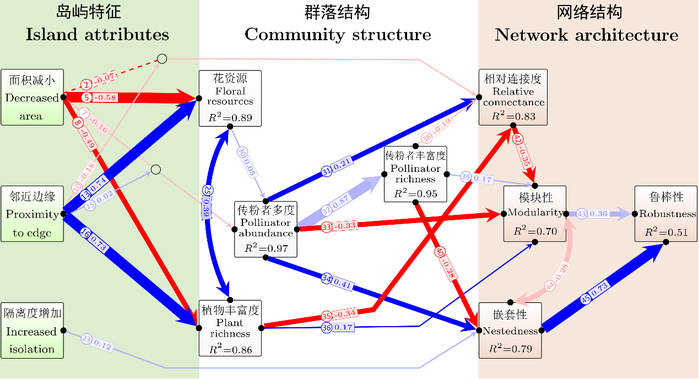
Title: Forest edges increase pollinator network robustness to extinction with declining area
Peng Ren, Raphael K. Didham, Mark V. Murphy, Di Zeng, Xingfeng Si & Ping Ding
Abstract
Edge effects often exacerbate the negative effects of habitat loss on biodiversity. In forested ecosystems, however, many pollinators actually prefer open sunny conditions created by edge disturbances. We tested the hypothesis that forest edges have a positive buffering effect on plant-pollinator interaction networks in the face of declining forest area. In a fragmented land-bridge island system, we recorded ~20,000 plant-pollinator interactions on 41 islands over 3 yr. We show that plant richness and floral resources decline with decreasing forest area at both interior and edge sites, but edges maintain 10-fold higher pollinator abundance and richness regardless of area loss. Edge networks contain highly specialized species, with higher nestedness and lower modularity than interior networks, maintaining high robustness to extinction following area loss while forest interior networks collapse. Anthropogenic forest edges benefit community diversity and network robustness to extinction in the absence of natural gap-phase dynamics in small degraded forest remnants.
Link: https://doi.org/10.1038/s41559-022-01973-y






